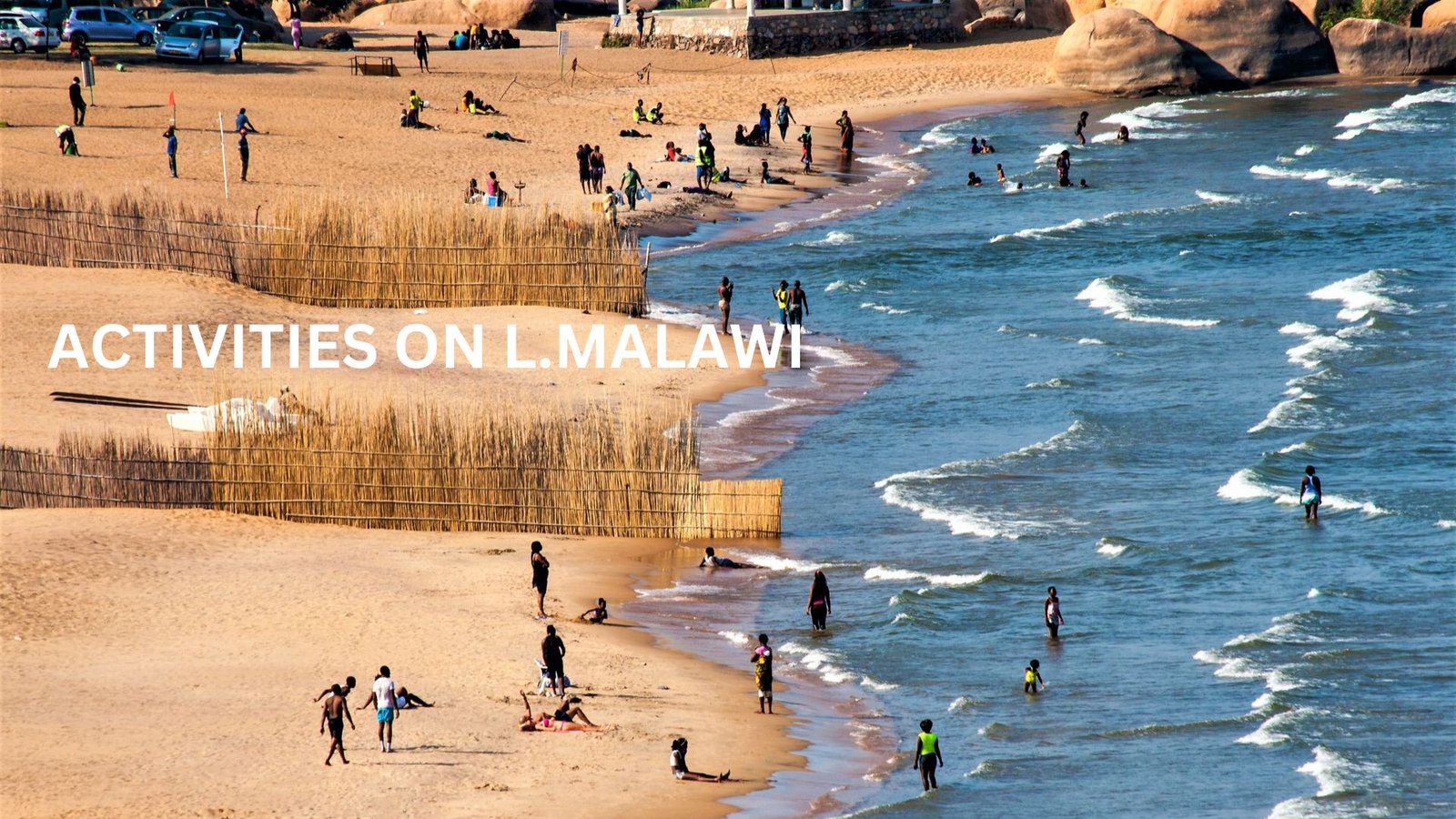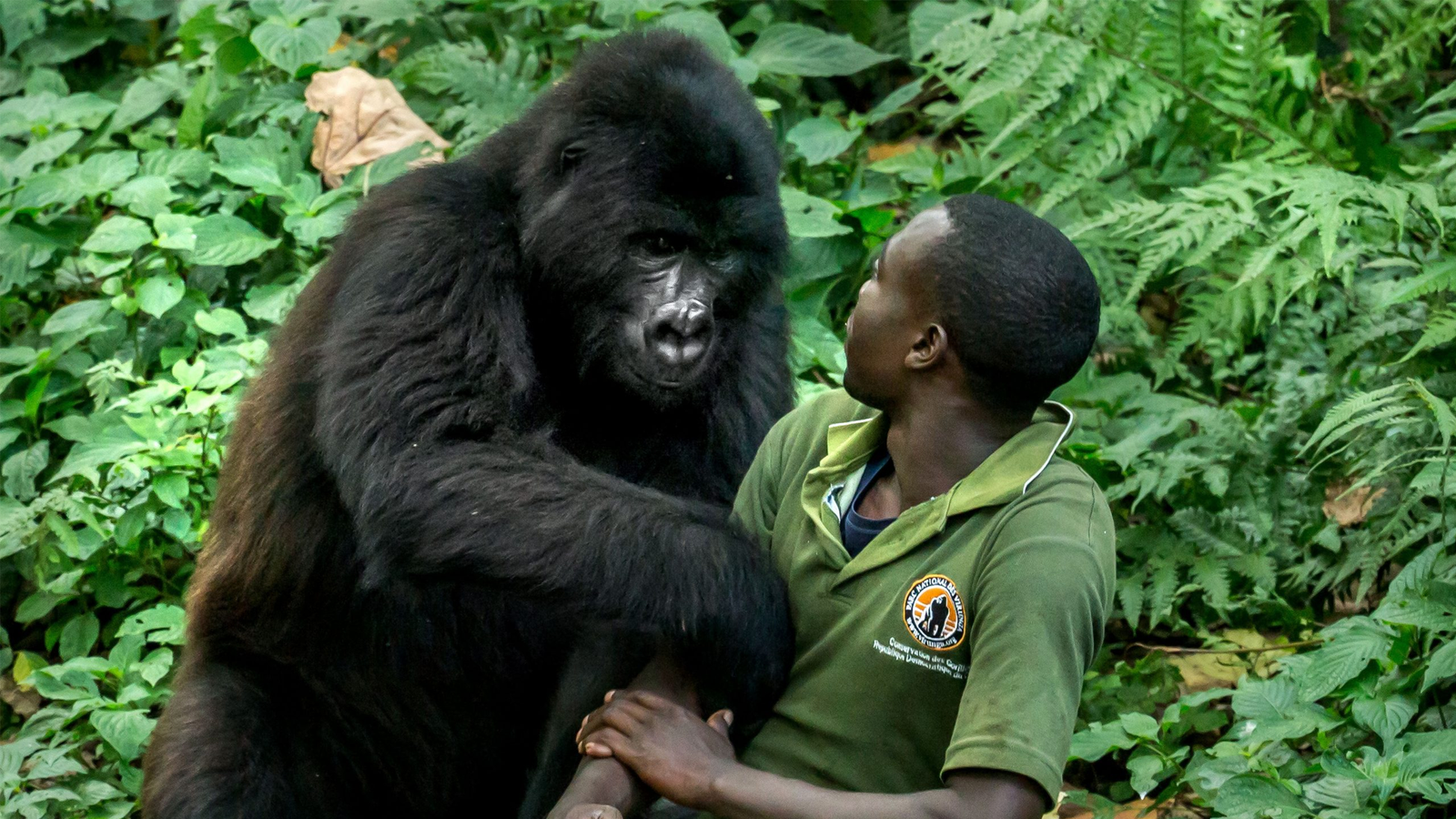The Kataara Women Project in Queen Elizabeth National Park
The Kataara Women’s Poverty Alleviation Group is an award-winning enterprise located in Kampala, Uganda. They were the recipient of the 2014 SEED Africa Award in Waste Management.
The enterprise focuses on working with women to create paper from a unique local resource – elephant dung. This innovative paper is then used to make various handicrafts like cards, menus, and notebooks, which are sold to tourists. Additionally, the women are trained in constructing energy-efficient cook stoves, which are marketed locally.
The enterprise employs women and also encourages them to contribute a small membership fee. The profits generated from their activities are reinvested back into the enterprise and used for a micro-loan scheme that benefits its members.
By utilizing elephant dung for their paper-making, the enterprise promotes community cohesion and environmental awareness, as people see the benefits of caring for the elephants and working together to improve their habitat and the overall environment.
The eco-inclusive impacts of the Kataara Women’s Poverty Alleviation Group include:
Capitalizing on a unique resource (elephant dung) to create innovative forms of employment and industry.
Capitalizing on a unique resource like elephant dung to create innovative forms of employment and industry refers to the enterprise’s ability to leverage a local and abundant raw material in a creative and sustainable way to generate economic opportunities and promote environmental conservation.
In the case of the Kataara Women’s Poverty Alleviation Group, they use elephant dung, which is available in the region due to the presence of elephants in Queen Elizabeth National Park, Uganda. Instead of considering elephant dung as waste or an environmental issue, the enterprise saw the potential value in this resource and developed a creative solution to turn it into a valuable product – paper.
By making paper from elephant dung, the enterprise creates employment opportunities for women in the community. Women are involved in various stages of the process, such as collecting the dung, processing it to make pulp, and crafting the final paper products.
This innovative form of employment allows women to earn income and contribute to their families and communities, helping to alleviate poverty and improve livelihoods.
Moreover, the enterprise’s initiative helps in conserving the environment and wildlife. By using elephant dung for paper-making, they reduce waste and promote sustainable practices.
This also raises awareness about the importance of protecting elephants and their habitat, as the enterprise demonstrates the value that can be derived from preserving these majestic creatures.
Furthermore, the enterprise’s approach showcases how a unique and unconventional resource can be harnessed to create an entire industry. The products made from elephant dung paper, such as cards, menus, and notebooks, are sold to tourists visiting the region.
This not only supports the enterprise financially but also boosts the local economy through tourism and the sale of handicrafts.
Overall, capitalizing on the unique resource of elephant dung is a prime example of how entrepreneurship can be used to address social and environmental challenges, turning them into opportunities for sustainable development. It also highlights the importance of creativity and innovation in finding solutions that benefit both the community and the environment.
Improving livelihoods through the sale of handicrafts and elephant dung paper, generating profits for enterprise members.
Improving livelihoods through the sale of handicrafts and elephant dung paper refers to the positive impact that the Kataara Women’s Poverty Alleviation Group has on the economic well-being of its members and the community.
By engaging in the production and sale of handicrafts and elephant dung paper, the enterprise creates income-generating opportunities and generates profits that benefit its members in several ways:
- Income Generation: Through the sale of handicrafts like cards, menus, notebooks, and other products made from elephant dung paper, the enterprise generates revenue. This income is then distributed among the women involved in the production process, providing them with a reliable and sustainable source of income.
- Empowerment of Women: The enterprise’s focus on women’s involvement in the production process empowers them economically and socially. By providing employment opportunities and income, it enhances the economic independence of women, giving them greater decision-making power and control over their lives.
- Poverty Alleviation: The steady income earned through the sale of products helps in reducing poverty levels within the community. As women earn more and contribute to their households’ financial well-being, the overall standard of living in the community can improve.
- Skill Development: Engaging in handicraft production and paper-making from elephant dung also allows women to acquire new skills and expertise. These skills can be beneficial in other contexts and may open up additional income opportunities.
- Micro-loan Scheme: As mentioned in the enterprise’s description, a portion of the profits generated is reinvested into a micro-loan scheme that serves its members. This scheme provides access to low-interest loans, which can be utilized for various purposes, such as starting or expanding small businesses, furthering education, or addressing emergencies.
- Sustainable Livelihoods: By creating a market for handicrafts and elephant dung paper, the enterprise establishes a sustainable business model that can continue to benefit the community in the long term. It encourages the responsible use of natural resources, such as elephant dung, while simultaneously promoting economic development.
Overall, by focusing on the sale of handicrafts and elephant dung paper, the Kataara Women’s Poverty Alleviation Group contributes to the economic empowerment and well-being of its members.
It demonstrates the potential for social enterprises to have a positive impact on livelihoods and poverty reduction by aligning business activities with environmental conservation and community development goals.
Fostering a sense of community cohesion by demonstrating how locals can collaborate to create innovative products.
Fostering a sense of community cohesion by demonstrating how locals can collaborate to create innovative products refers to the positive social impact of the Kataara Women’s Poverty Alleviation Group’s activities within the community.
- Community Involvement: The enterprise’s focus on working with local women in the community to create innovative products from elephant dung paper and handicrafts involves collaboration and active participation. This involvement encourages a sense of ownership and pride among community members, as they see the direct impact of their contributions.
- Promoting Local Identity: By using a unique local resource like elephant dung to create products, the enterprise highlights the community’s distinct identity and local resources. This fosters a sense of pride and connection to their cultural heritage.
- Learning and Skill Sharing: The enterprise’s approach involves training and capacity-building for women in the community. As knowledge and skills are shared among community members, it strengthens social bonds and creates a supportive learning environment.
- Environmental Awareness: The enterprise’s focus on sustainability and responsible resource use helps raise environmental awareness within the community. By demonstrating how a local resource can be utilized creatively and sustainably, it encourages a shared sense of responsibility for the environment and its preservation.
- Collective Benefit: The enterprise’s success and profits directly benefit the community. As community members see the positive outcomes of their collaborative efforts, it fosters a sense of collective benefit and encourages further collaboration for common goals.
- Inspiring Innovation: The enterprise’s approach to turning elephant dung into paper and creating various handicrafts serves as an inspiration for other community members to explore innovative solutions to local challenges. This can lead to a culture of innovation and problem-solving within the community.
- Strengthening Social Bonds: Working together on a common project can create strong social bonds and networks within the community. The sense of teamwork and shared purpose can enhance social cohesion and create a supportive environment for community members.
- Community Engagement: The enterprise’s activities, such as selling products to tourists, may also involve interactions with visitors and tourists. This engagement can enhance the community’s sense of pride in their work and culture while fostering cross-cultural understanding and appreciation.
Overall, the Kataara Women’s Poverty Alleviation Group’s collaborative approach to creating innovative products not only benefits the environment and local economy but also brings the community together. It promotes a sense of shared purpose, collective benefit, and pride in their local resources and creativity, creating a positive social impact that goes beyond economic considerations.
Reducing greenhouse gas emissions through the sale of energy-efficient cook stoves. The Kataara Women Project in Queen Elizabeth National Park
Reducing greenhouse gas emissions through the sale of energy-efficient cook stoves refers to the positive environmental impact of the Kataara Women’s Poverty Alleviation Group’s initiative in promoting and marketing these stoves locally.
- Energy Efficiency: Energy-efficient cook stoves are designed to consume less fuel compared to traditional stoves, leading to reduced fuel consumption. By requiring less fuel to cook food, these stoves help decrease the demand for biomass fuels such as firewood or charcoal.
- Less Deforestation: The reduced demand for firewood and charcoal can help mitigate deforestation. In many areas, the main sources of cooking fuel are obtained from cutting down trees, leading to deforestation, habitat loss, and increased greenhouse gas emissions. Energy-efficient stoves contribute to the preservation of forests and their important role in sequestering carbon dioxide.
- Lower Greenhouse Gas Emissions: Traditional cooking methods, especially when using open fires or inefficient stoves, release significant amounts of greenhouse gases, including carbon dioxide and methane, into the atmosphere. Energy-efficient cook stoves produce fewer emissions per unit of cooking, helping to mitigate climate change.
- Improved Air Quality: Energy-efficient stoves produce less smoke and indoor air pollution compared to traditional stoves. This improvement in indoor air quality has direct health benefits, particularly for women and children who often spend considerable time near cooking areas.
- Health Benefits: In addition to reducing greenhouse gas emissions, energy-efficient stoves reduce exposure to harmful smoke and pollutants, which can lead to respiratory issues and other health problems. By improving indoor air quality, these stoves can contribute to better health outcomes for the community.
- Sustainable Development: Promoting energy-efficient cook stoves aligns with sustainable development goals by addressing environmental and health concerns while providing economic benefits to the community through reduced fuel costs and improved livelihoods.
- Local Adoption: Since the enterprise markets the energy-efficient cook stoves locally, it encourages wider adoption within the community. The more households that switch to energy-efficient stoves, the greater the overall impact on greenhouse gas emissions and environmental conservation.
Overall, by advocating and selling energy-efficient cook stoves, the Kataara Women’s Poverty Alleviation Group contributes to reducing greenhouse gas emissions, mitigating climate change, preserving natural resources, and promoting sustainable development in the region.
Their efforts in this area exemplify the potential of social enterprises to have positive environmental impacts and drive community-level change.
Helping minimize deforestation and land encroachment around Queen Elizabeth National Park.
The efforts of the Kataara Women’s Poverty Alleviation Group, particularly through their initiatives like using elephant dung for paper-making and promoting energy-efficient cook stoves, can contribute to minimizing deforestation and land encroachment around Queen Elizabeth National Park in several ways:
- Reduced Demand for Firewood: By utilizing elephant dung for paper-making and promoting energy-efficient cook stoves, the enterprise reduces the demand for firewood as a cooking fuel. In many communities, firewood is sourced from nearby forests, leading to deforestation and degradation of natural habitats. By offering alternative, sustainable, and more efficient energy sources, the enterprise helps lessen the pressure on surrounding forests.
- Preserving Natural Resources: The use of elephant dung as a raw material for paper-making showcases a sustainable approach to resource utilization. Instead of relying on traditional wood-based pulp, the enterprise creatively utilizes an abundant and renewable resource without impacting the local forest ecosystem.
- Conservation Awareness: The enterprise’s activities raise awareness about the importance of protecting elephants and their habitat. As the community sees the benefits of preserving the environment for the elephants and their livelihoods, it can lead to a greater sense of responsibility and stewardship towards the surrounding natural areas.
- Economic Incentive for Conservation: By promoting eco-friendly products like elephant dung paper and energy-efficient cook stoves, the enterprise creates economic incentives for conservation. When tourists buy these products, they contribute to the livelihoods of the local community, encouraging them to actively participate in protecting the environment and wildlife that attract tourists to the area.
- Improved Cooking Practices: The use of energy-efficient cook stoves helps in reducing the amount of firewood or charcoal needed for cooking. This conservation-conscious approach aligns with the goals of preserving the forested areas surrounding the national park.
- Strengthening Local Communities: By providing income-generating opportunities for women in the community, the enterprise contributes to poverty alleviation. Economic stability can reduce the pressure on natural resources and decrease the need for resource-dependent livelihoods that may lead to deforestation or land encroachment.
- Collaboration with Conservation Organizations: The Kataara Women’s Poverty Alleviation Group partners with organizations like the World-Wide Fund for Nature (WWF). This collaboration can enhance the effectiveness of conservation efforts by combining local community initiatives with expertise and resources from conservation-focused organizations.
Overall, the efforts of the Kataara Women’s Poverty Alleviation Group can contribute to minimizing deforestation and land encroachment around Queen Elizabeth National Park by promoting sustainable practices, raising conservation awareness, and providing economic incentives for conservation efforts within the community. This combination of approaches can play a crucial role in safeguarding the natural environment and the wildlife habitat surrounding the park.
Encouraging incentives for the conservation of the local elephant population. The Kataara Women Project in Queen Elizabeth National Park
Creating a local industry through the sale of cook stoves, handicraft products, and elephant dung paper.
Providing low-interest loans for members through a savings scheme funded by a portion of the group’s profits.
The enterprise is supported through partnerships with various stakeholders, including national and international organizations, investors, research institutes, suppliers, governmental bodies, NGOs, and other social and environmental enterprises. Notably, the World-Wide Fund for Nature (WWF) provides technical and funding support to the enterprise and assists with media, marketing, and communications to help the enterprise share its messages with international audiences.
For further information or to collaborate with the Kataara Women’s Poverty Alleviation Group, interested parties can contact them directly through the provided form on their website



